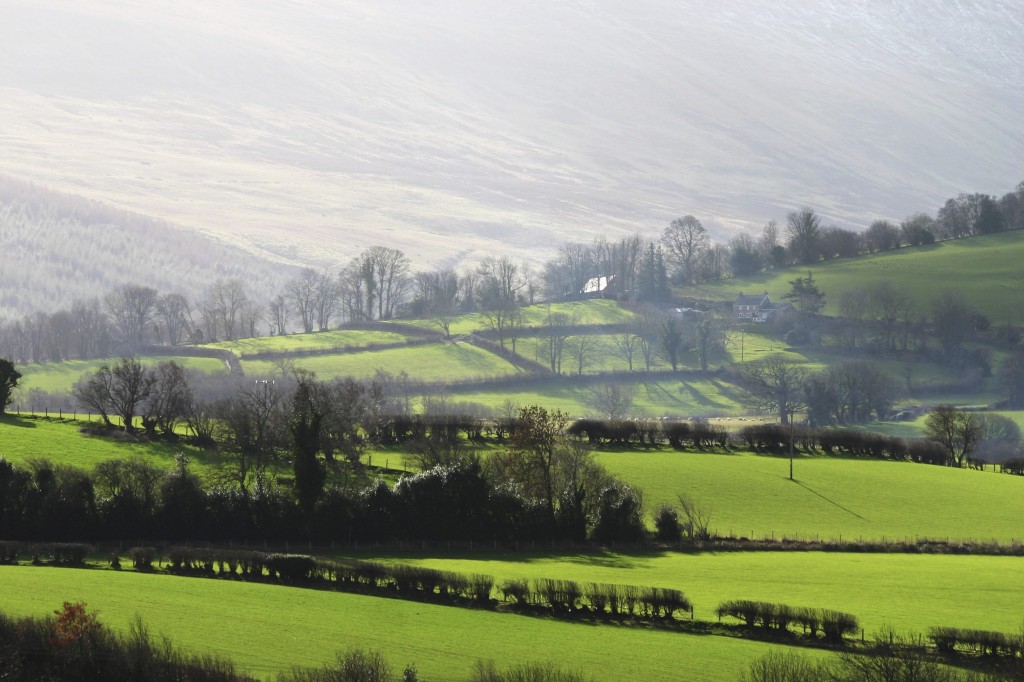Sometimes I get stuck on funny things. I am not sure where this particular idea came from, but last fall I had the romantic notion that it would be neat to work on a farm in Wales. It became almost an obsessive goal for me, and late one night I finally stumbled across the WWOOF (World Wide Opportunities on Organic Farms) site online. WWOOF met all of my travel requirements: a) it was the right price for my pathetically thin travel budget, and b) I could plan everything without having to move from my desk. I was sold. A few days later, I was registered and ready to head up to Northern Wales for my Christmas break.
The conversation I had with my mother, however, gave me a cause to pause and reflect. As I tried to explain the concept to her, she remained confused. It wasn’t a vacation – I was working on a farm. But it wasn’t a job; I would not be getting paid for my work, only be given free accomodation and board in exchange. Her response? “It sounds like organic farm slave labour to me.”
Some of my friends from university were equally horrified when they learned of my plans for the vacation, warning me that I might a) see lots of sheep, and b) be surrounded by people actually speaking Welsh. Despite these terrors, I decided to take my chances, and as soon as Michaelmas term reached its close, I boarded the train to Welshpool where my hosts Lizzie and Dave would pick me up from the station.
Fortunately for me, the sheep-filled slave labouring fears proved unfounded. Mornings at Cefn-y-Pywll farm began with the smell of warm bread freshly baked, and the soft tread of slippered feet leaving tea outside my door. Dynamic conversations on the environment, American and British politics, and on different parsnip recipes all accompanied my tasks of planting, weeding, building, and tree cutting. Jobs varied from day to day, but I was expected to take my turn at chores from baking Bara brith to logging. Whilst the thought of me wielding a chainsaw or running a wood splitter put my family in stitches back at home, my hosts were exceedingly patient and took the time to instruct me in whatever the task of the day happened to be. Admittedly, they too sometimes found my attempts amusing, and I would occasionally turn around whilst working to find myself face to face with a camera lens. Thank goodness I look so smart in waders, and in overalls, and in disrespectable-looking oil skin coats.
I was there in December, so outdoor work was on the decline and my host Lizzie took me with her on many of her errands as a break from the relentless cold wind, to which she seemed impervious while I huddled and shivered in vain. Everything was new and foreign to me, and before I accompanied Lizzie to her local quilter’s club meeting I hadn’t realized that I was also new and foreign to many of the locals. After introducing me to the line of warm, laughter-lined faces, one woman sitting next to me leaned in while raising her spectacles to peer closely at my face and gleefully declare, “I’ve always wanted to meet a WWOOFer!” My presence was unprecedented in their intimate circle, but also a very welcome one, and I eventually left the meeting with a handful of quilt patterns and a lot of great stories. While the women gabbed, I was set to carefully folding and pinning fabrics that would later be raffled off to support a charity. I couldn’t help but think, as I pieced that quilt together, that I’d been generously allowed to enter into the seams of their lives, quietly stitching away to the hum of their sewing machines and the padded thump of irons on boards. Later Lizzie told me that she considered introducing her WWOOFers to the community absolutely essential, and to some groups specifically:
‘Lizzie: I like to bring my WWOOFers to the Montgomery Field Society Meetings. I think it’s good to educate them.
Me: The WWOOFers
Lizzie (archly): The Montgomery Field Society.’
I’m not sure felt most rewarded because of our chance meeting, but the women I met at the quilter’s meeting couldn’t fail to leave an indelible mark on me. The soft chuckle of voices and village gossip spun around just as quickly as the whirling of their machines, and for an hour or two we all seemed suspended in time.
Late on the last night of my trip, huddled beneath homemade quilts, I considered the path that had led me to that small farm in Northern Wales. As an American Visiting Student at Oxford, I had originally wanted to see the United Kingdom from a different perspective to that of hostelling. The idea of being outside working every day struck me as genuinely appealing, and eventually I decided to just give it a go. From my little attic room in a two-hundred year-old farmhouse at the top of a mountain, it seemed that I had made a spectacularly perceptive move to abandon the bustle of Oxford for the slow-paced Welsh country-side. There is something about trading-in books and papers for shovels and land rovers that is really liberating.
Perhaps organic farm slave labour isn’t such a bad way to see the world after all.




